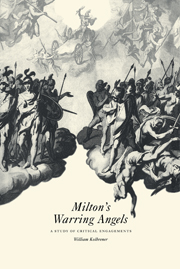2 - “Not the readiest way”: Milton and the abandonment of politics
Published online by Cambridge University Press: 23 November 2009
Summary
Although in Areopagitica Milton was able to argue that the printing press enabled the virtual identity of public and private spheres and the creation of a diffused, inclusive, and corporate authority, by the time of Milton's Defence, that public sphere was already constricting. To justify Pride's Purge, for example, the “minority” who attempted to “preserve their freedom” stand in synecdochically, according to Milton, for all the people of England:
“Did the people,” you ask, “do violence to the commoners of the lower house, putting some to flight …?” I say it was the people; for why should I not say that the act of the better, the sound part of the Parliament, in which resides the real power of the people was the act of the people? (IV.I 457)
Robert Filmer's acerbic response to Milton's definition of the “people” in his “Mr. Milton Against Salmasius,” however, evidences no sympathy for Milton's use of synecdoche.
“Come to our modern politicians,” Filmer writes, “and ask them who the people is, though they talk big of the people, yet they take up and are content with a few representors (as they call them) of the whole people … neither are these representors stood upon to be the whole people.” Of all these “modern politicians,” however, “J.M.,” writes the author of Patriarcha, makes the most outrageous claims: he “will not allow the major part of these representors to be the people, but the sounder and better part of them …” If “the sounder, the better, and the uprighter part have the power of the people,” Filmer asks, “how shall we know, or who shall judge who they be?” Filmer's question, directed as an attack on both Milton and contemporary republicanism, is reflected – although implicitly – in Milton's prose of the 1650s.
- Type
- Chapter
- Information
- Milton's Warring AngelsA Study of Critical Engagements, pp. 28 - 50Publisher: Cambridge University PressPrint publication year: 1997



